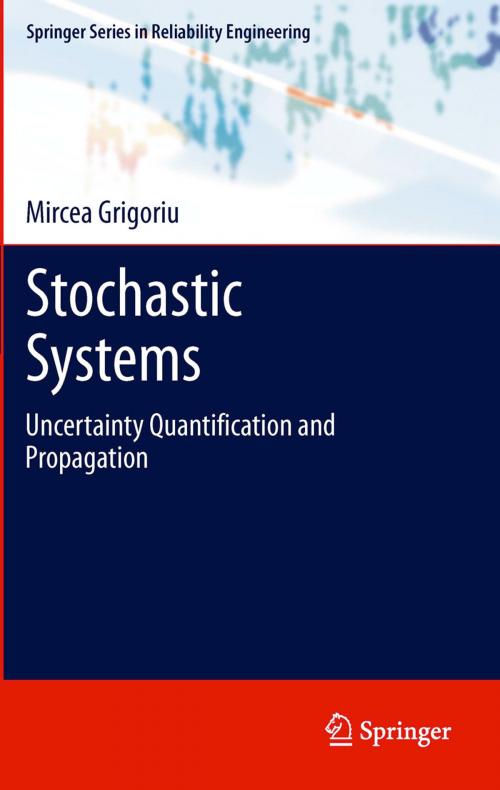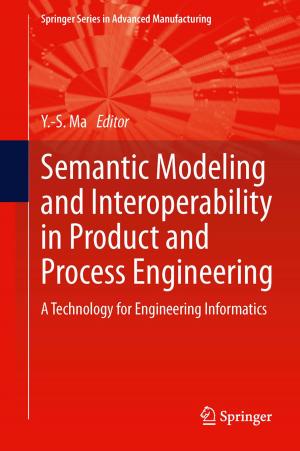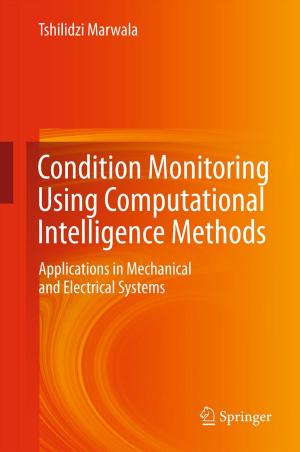Stochastic Systems
Uncertainty Quantification and Propagation
Nonfiction, Science & Nature, Technology, Quality Control, Mathematics, Statistics| Author: | Mircea Grigoriu | ISBN: | 9781447123279 |
| Publisher: | Springer London | Publication: | May 15, 2012 |
| Imprint: | Springer | Language: | English |
| Author: | Mircea Grigoriu |
| ISBN: | 9781447123279 |
| Publisher: | Springer London |
| Publication: | May 15, 2012 |
| Imprint: | Springer |
| Language: | English |
Uncertainty is an inherent feature of both properties of physical systems and the inputs to these systems that needs to be quantified for cost effective and reliable designs. The states of these systems satisfy equations with random entries, referred to as stochastic equations, so that they are random functions of time and/or space. The solution of stochastic equations poses notable technical difficulties that are frequently circumvented by heuristic assumptions at the expense of accuracy and rigor. The main objective of Stochastic Systems is to promoting the development of accurate and efficient methods for solving stochastic equations and to foster interactions between engineers, scientists, and mathematicians. To achieve these objectives Stochastic Systems presents:
A clear and brief review of essential concepts on probability theory, random functions, stochastic calculus, Monte Carlo simulation, and functional analysis
* *Probabilistic models for random variables and functions needed to formulate stochastic equations describing realistic problems in engineering and applied sciences
* *Practical methods for quantifying the uncertain parameters in the definition of stochastic equations, solving approximately these equations, and assessing the accuracy of approximate solutions
Stochastic Systems provides key information for researchers, graduate students, and engineers who are interested in the formulation and solution of stochastic problems encountered in a broad range of disciplines. Numerous examples are used to clarify and illustrate theoretical concepts and methods for solving stochastic equations. The extensive bibliography and index at the end of the book constitute an ideal resource for both theoreticians and practitioners.
Uncertainty is an inherent feature of both properties of physical systems and the inputs to these systems that needs to be quantified for cost effective and reliable designs. The states of these systems satisfy equations with random entries, referred to as stochastic equations, so that they are random functions of time and/or space. The solution of stochastic equations poses notable technical difficulties that are frequently circumvented by heuristic assumptions at the expense of accuracy and rigor. The main objective of Stochastic Systems is to promoting the development of accurate and efficient methods for solving stochastic equations and to foster interactions between engineers, scientists, and mathematicians. To achieve these objectives Stochastic Systems presents:
A clear and brief review of essential concepts on probability theory, random functions, stochastic calculus, Monte Carlo simulation, and functional analysis
* *Probabilistic models for random variables and functions needed to formulate stochastic equations describing realistic problems in engineering and applied sciences
* *Practical methods for quantifying the uncertain parameters in the definition of stochastic equations, solving approximately these equations, and assessing the accuracy of approximate solutions
Stochastic Systems provides key information for researchers, graduate students, and engineers who are interested in the formulation and solution of stochastic problems encountered in a broad range of disciplines. Numerous examples are used to clarify and illustrate theoretical concepts and methods for solving stochastic equations. The extensive bibliography and index at the end of the book constitute an ideal resource for both theoreticians and practitioners.















